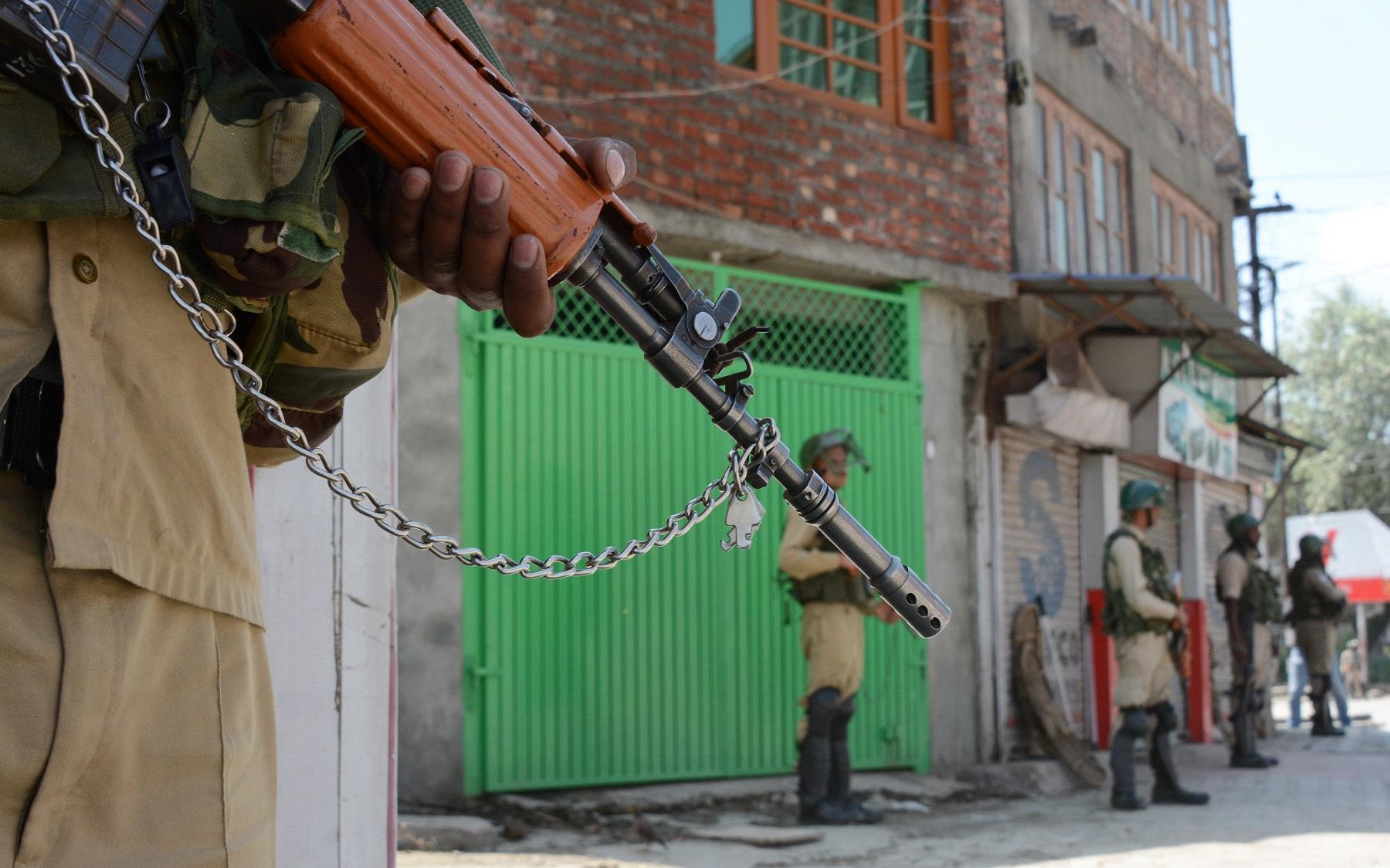Kashmir: India’s top court is asked to reverse decision on revoking special status
Despite objections from the government that Pakistan would use proceedings to ‘embarrass’ India, hearings are set to begin in October

India’s Supreme Court has agreed to hear legal challenges to the Modi administration’s withdrawal of Kashmir’s special constitutional status whereby the Muslim-majority region was stripped of its autonomy.
Despite objections from the government that Pakistan would use the proceedings to “embarrass” India on the world stage, chief justice Ranjan Gogoi ordered that a full five-judge bench begin hearings on the matter from October.
In a victory for rights activists, the court also demanded the government reply within seven days to a petition filed by the editor of the Kashmir Times, seeking an end to the communications lockdown that has stifled voices from the region and hampered the work of the media. Amnesty International has said the 23-day block on phone lines and internet is denying Kashmiris their right to freedom of speech.
At the heart of the 14 petitions considered by the court in Wednesday’s preliminary hearing was a challenge for the justices to strike down the government’s “unilateral” decision to strip Jammu and Kashmir of its statehood, divide the region into two “union territories” under direct rule from Delhi, and withdraw the sweeping autonomy it had enjoyed since the kingdom of Kashmir acceded to India in 1947.
Many in the Kashmir valley fear that the move will be used to dilute the Muslim-majority region’s culture and demography, by allowing Hindu settlers from the rest of the country to buy property there for the first time.
The government has enforced a tight military lockdown on the region since the takeover, fearing a violent uprising.
The National Conference, a major local party whose leaders have been under house arrest since the decision was announced on 5 August, brought a petition saying it set a precedent that could unravel the very structure of federal India, by dividing Jammu and Kashmir “without taking consent from the people”.
Critics argue that the manner in which the government revoked Article 370 – the constitutional clause granting Kashmir autonomy – does not stand up to legal scrutiny. The Modi government had added a clause to the Indian constitution saying it could give assent to its own decision on a state matter because Kashmir’s local assembly was dissolved at the time.
Mr Gogoi said: “Let all the petitions on the Article 370 issue go to a five-judge bench for hearing.”
He and two other judges rejected the government’s opposition to a notice – a response from the government setting out its stance on the court challenges – after officials said the document could be cited by Pakistan at the UN.
Attorney general K K Venugopal said he and another law officer were present in court and there was no need for the written notice, hinting that the matter had “cross-border implications”.
When a lawyer for one petitioner suggested the government wanted to suppress the Supreme Court in its duties in order to avoid embarrassment, Mr Gogoi replied firmly: “We know our duties.
“We know what to do, we have passed the order, we are not going to change.”
Pakistan, which like India controls part of Kashmir and lays claim to the region in its entirety, is paying attention to the proceedings.
In Islamabad, foreign minister Shah Mahmood Qureshi told reporters on Wednesday that India’s Supreme Court was “under immense pressure from Modi’s government” and said “let us see whether the judiciary does justice on [the] 14 petitions”.
Mr Qureshi demanded that India allow in UN observers and human rights organisations to examine the situation in Kashmir.
There is a long record of supporters of the Modi administration seeking to silence critics by accusing them of being “anti-nationals”.
On Wednesday, the top two trends on Twitter in India were hashtags accusing the former president of the opposition Congress party, Rahul Gandhi, of “shaming India”.
Mr Gandhi, after he was refused permission to travel to Kashmir with other opposition leaders to assess the situation, said on camera that “things in Jammu and Kashmir are going very wrong… there are reports of violence, there are reports of people dying”. The Independent has reported both on clashes and unregistered deaths in the ongoing crisis.
Yet Mr Gandhi received a great deal of criticism after Pakistan quoted him in a submission to the UN. Mr Gandhi later tweeted that while he disagrees with his government on many issues, “Kashmir is India’s internal issue and there is no room for Pakistan or any other foreign country to interfere in it”.
Also at the Supreme Court hearing, the justices heard a petition from a young lawyer, Mohammed Aleem Sayed, who said he was worried about his elderly parents in Kashmir but was unable to reach them on the phone and had been prevented from travelling to check on them.
Mr Gogoi ordered not only that he be allowed to go but that the state should “make arrangements” for him, saying that “if a citizen wants to visit a part of the country, he must have access to [do so]”.
Join our commenting forum
Join thought-provoking conversations, follow other Independent readers and see their replies
Comments
Bookmark popover
Removed from bookmarks